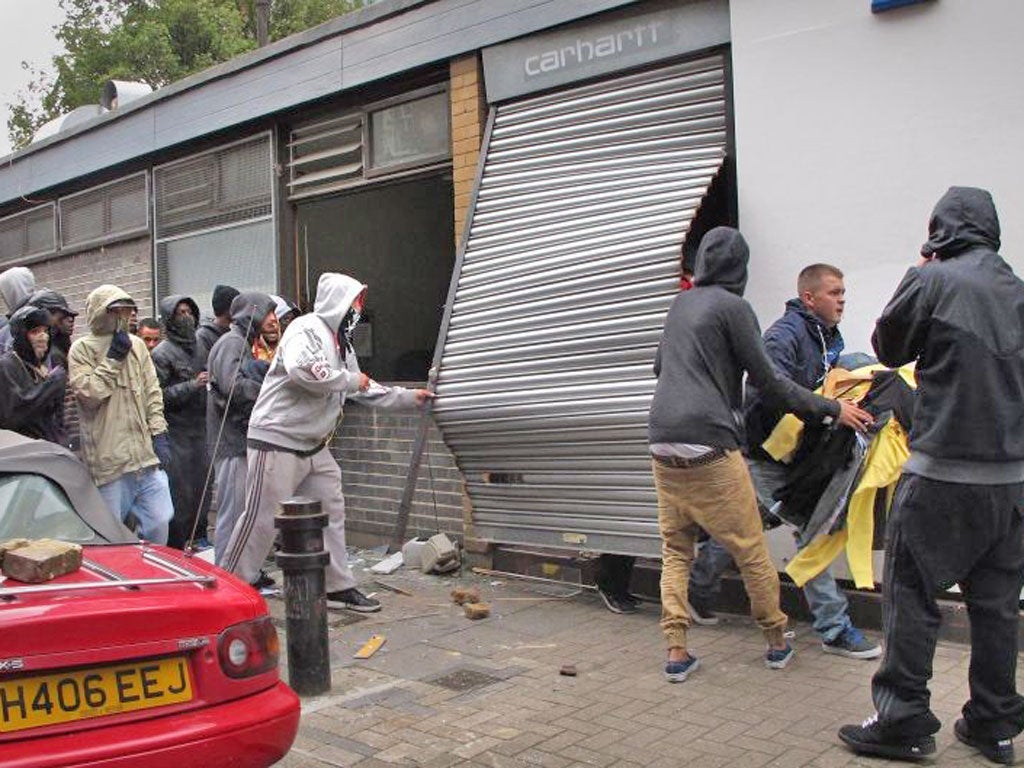Giving a voice to a scorned generation
In the last part of a series on last year's riots, Owen Jones visits a Manchester charity striving to tackle demonisation of young people

For those fighting the corner of young people in working-class communities, the backlash to last year's riots was a demoralising setback. "Feral youths" was bandied around in print and on the airwaves: the right-wing columnist Richard Littlejohn described rioters as a "wolfpack of feral inner-city waifs and strays" who needed to be clubbed "like baby seals". Those who called for politicians to engage with the underlying issues were often savaged as justifying "mindless" or "wanton criminality".
It was a backlash immediately felt by one charity that works with young people from some of the poorest areas of Greater Manchester. In the aftermath of riots in Salford and Manchester, the RECLAIM Project set up a new initiative, "RECLAIM Our Name", to combat the growing demonisation of young people. "We were trying to get young people into the arts, so we could use the spaces and the museums," says Sinead Andrews, 17, a sixth-form student from a council estate in New Moston. "Then when the riots continued, we'd built loads of relationships and they broke down suddenly, so we had to go out there and 'reclaim our name'."
As Dominic White, a 21-year-old who works full-time at the charity, put it, the way young people are portrayed is "overwhelmingly negative. You don't really find it as for other groups. Perhaps the only group that's similar is Muslims, but there are huge Islamophobia projects to target it." As well as crushing self-esteem, Ebony Montague, the charity's 17-year-old artist-in-resident, argued the demonisation could be a self-fulfilling prophecy. "When the media portray young people as feral rats or as wasted youth, some people might see that and think – you know what, if they're going to portray me like that, I might as well as live up to the stereotype."
The big challenge is overcoming growing disillusionment among young people with the entire political process. "For now, politics to us is everything that they're taking away from us," says Ms Andrews. "The only time I've bothered about politics is whether the EMA [Educational Maintenance Allowance] is going to be there, and the cost of university. Nothing else in politics has made me stare at the telly and think, that matters to me."
Rather than falling back on knee-jerk condemnation, local politicians are looking to engage with what drove last summer's chaos. "The initial reaction was that it was wanton criminality and we should be cracking down on it and the people responsible," says Kevin Peel, a 28-year-old Labour councillor for Manchester City Centre. "What's come out since then is that it's a bit more complicated than that."
His colleague, 40-year-old Labour councillor Amina Lone, is director of the think tank Social Action and Research Foundation, which has just published a report on the riots calling for new investment in Manchester's poorest areas and a review of stop-and-search.
"In Salford, the biggest thing was about hating the police," she said. "And it was literally visceral hatred for the police, entrenched over many years." But, as well as agreeing about the need to abandon tokenistic "listening exercises", she said the middle-class takeover of politics had to be addressed.
The causes of last year's riots are undoubtedly as complex as they are contestable. But unless this lack of voices from outside middle-class Britain is addressed, it is difficult to see how those issues will ever be properly tackled. As Jordan McGlacken, an 18-year-old aspiring musician and part-time charity worker, warns: "The first thing about the riots is that they're just the first – and there's going to be a lot more if things don't change."
Subscribe to Independent Premium to bookmark this article
Want to bookmark your favourite articles and stories to read or reference later? Start your Independent Premium subscription today.

Join our commenting forum
Join thought-provoking conversations, follow other Independent readers and see their replies